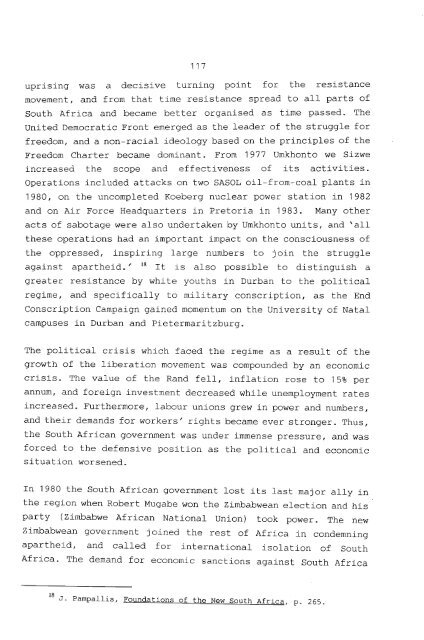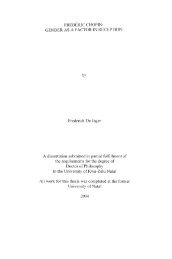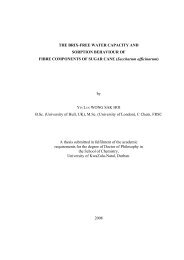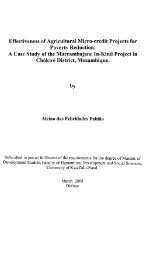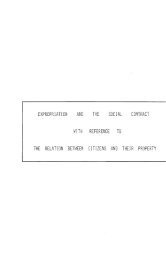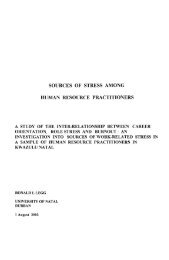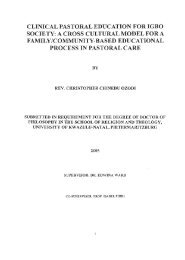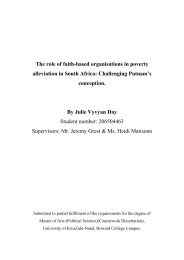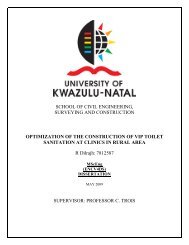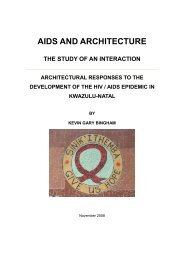FROM ROCK 'N 'ROLL TO HARD CORE PUNK - UKZN ...
FROM ROCK 'N 'ROLL TO HARD CORE PUNK - UKZN ...
FROM ROCK 'N 'ROLL TO HARD CORE PUNK - UKZN ...
Create successful ePaper yourself
Turn your PDF publications into a flip-book with our unique Google optimized e-Paper software.
117<br />
uprising was a decisive turning point for the resistance<br />
movement, and from that time resistance spread to all parts of<br />
South Africa and became better organised as time passed. The<br />
United Democratic Front emerged as the leader of the struggle for<br />
freedom, and a non-racial ideology based on the principles of the<br />
Freedom Charter became dominant. From. 1977 Umkhonto we Sizwe<br />
increased the scope and effectiveness of its activities.<br />
Operations included attacks on two SASOL oil-from-coal plants in<br />
1980, on the uncompleted Koeberg nuclear power station in 1982<br />
and on Air Force Headquarters in Pretoria in 1983. Many other<br />
acts of sabotage were also undertaken by Umkhonto units, and 'all<br />
these operations had an important impact on the consciousness of<br />
the oppressed, inspiring large numbers to join the struggle<br />
against apartheid.' 18 It is also possible to distinguish a<br />
greater resistance by white youths in Durban to the political<br />
regime, and specifically to military conscription, as the End<br />
Conscription Campaign gained momentum on the University of Natal<br />
campuses in Durban and Pietermaritzburg.<br />
The political crisis which faced the regime as a result of the<br />
growth of the liberation movement was compounded by an economic<br />
crisis. The value of the Rand fell, inflation rose to 15% per<br />
annum, and foreign investment decreased while unemployment rates<br />
increased. Furthermore, labour unions grew in power and numbers,<br />
and their demands for workers' rights became ever stronger. Thus,<br />
the South African government was under immense pressure, and was<br />
forced to the defensive position as the political and economic<br />
situation worsened.<br />
In 1980 the South African government lost its last major ally in<br />
the region when Robert Mugabe won the Zimbabwean election and his<br />
party (Zimbabwe African National Union) took power. The new<br />
Zimbabwean government joined the rest of Africa in condemning<br />
apartheid, and called for international isolation of South<br />
Africa. The demand for economic sanctions against South Africa<br />
18 J. Pampallis, Foundations of the New South Africa, p. 265.


